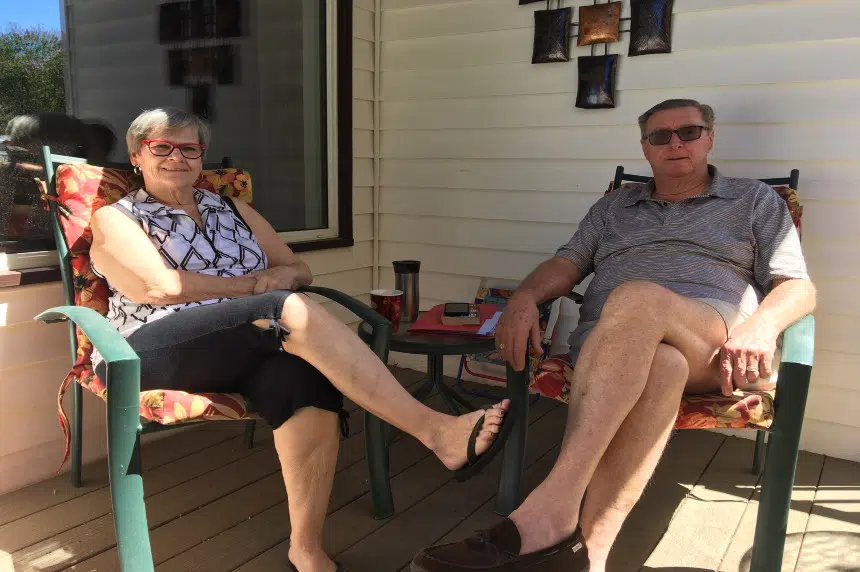A Saskatoon landlord says the government’s ban on residential evictions during COVID-19 is affecting his mental health and his retirement income.
Boyd and Bonnie Godfrey said they are owed more than $7,500 after their tenant of eight years stopped paying rent and utilities shortly before the moratorium on evictions for non-payment of rent came into effect on March 26.
“They’re taking advantage of the situation. They’re not paying rent and there’s nothing we can do about it until the government changes things,” said Boyd Godfrey.
The Saskatchewan Landlord Association said landlords are out roughly $30 million and some owners could be headed for bankruptcy in the next few months.
The Godfreys’ situation isn’t as dire, but the couple — who both turn 70 this year — rely on rental income to fund their retirement.
“I think when the government put this in place, they weren’t thinking clearly on what the repercussions were going to be on the small landholder like my wife and I,” Boyd said.
“We’re subsidizing the government to allow the non-eviction system to work.”
In a statement, the government said it is monitoring the situation, but offered no timeline when the ban could be rescinded.
“The Office of Residential Tenancies (ORT) is conducting eviction hearings for urgent situations where there is a potential risk to health or safety resulting from violence or damage to property,” the government said. “Landlords with concerns related to these issues are urged to contact the ORT to provide a full account of their circumstances.”
Each passing month without rent means another $1,700 the Godfreys have to float on their own.
Their tenant is self-employed, which Boyd said will make it more difficult to get the money back afterwards.
“A lot of the people I’m talking about are seniors who have set up this system of having their income come off revenue properties,” Godfrey said.
Godfrey said he has brought his plight to his local MLA and MP to no avail.
The tenant reached out to 650 CKOM to tell his side of the story.
As a self employed flooring installer, he said it’s been difficult find work during the pandemic.
He applied for the Canada Emergency Response Benefit (CERB) for three months, but said the $2,000 he’s receiving is going toward covering other bills.
“I didn’t ask to be in this position,” he said.
“There are so many small businesses that are in the same position as me. You can’t just sustain living off of nothing.”
He said he offered to pay some of the rent back when he landed a small job in Wakaw. However, he claims the landlord refused to compromise and instead locked him out of the garage and forced him to remove his vehicles in the driveway.
The government states tenants will be expected to pay their rent in full once the provincial state of emergency is over.
The tenant said he has lined up a couple of jobs this month, but doesn’t plan to pay the rent back after the eviction ban ends, because he says he will have to file for bankruptcy.







